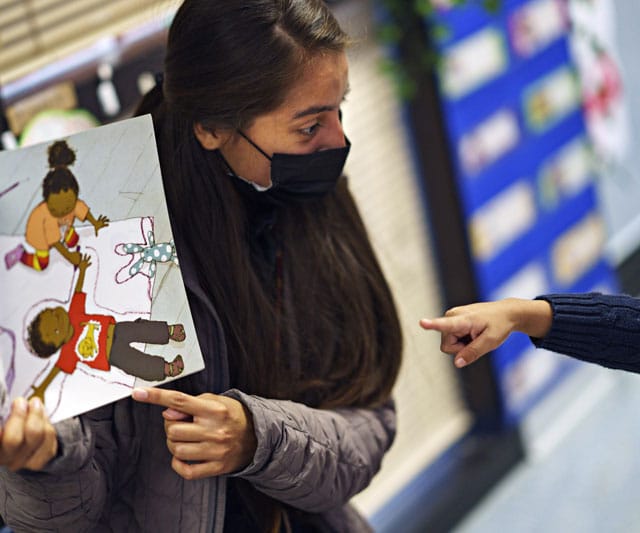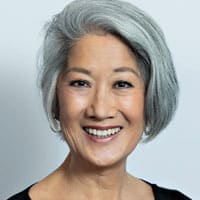
It’s not how much you earn. What really matters is how much you save. That is the simple truth of wealth management that Helen Abe learned from her mother.
The child of Chinese immigrants, Abe grew up in San Francisco, where her father worked as a roast pig cook and her mother as a seamstress — often working late into the evening and paid pennies for each piece of her work.
“We were a typical immigrant family in that the parents did not speak English,” says Abe. “They had the lowest-paying jobs, and we were basically poor, but the marvelous part is that I never knew it.”
It wasn’t until she worked her way through college and began a career in finance that Abe — now a financial advisor at RBC Wealth Management in Greenbrae, California — clearly understood her family’s financial reality.
As she helps clients with what she calls a “mind shift” on how they think about money and saving, Abe leans on the lessons she learned from her mother, who “saved her pennies and invested in real estate,” Abe says.
That saving habit paid off handsomely. Her mother first bought a four-unit apartment building, in which the family lived while renting out the other units. Later, she purchased a duplex and a 10-unit building.
“It did work out for our family and taught me the value of saving and investing, no matter what your income is,” Abe says, noting that she shares that lesson with students in the women’s financial literacy classes she teaches nearly every quarter at the College of Marin in Kentfield, California.
“I think my mother would be very happy to know that her legacy lives on,” Abe says. “That is why I enjoy teaching and encouraging young women that they can dream and their dreams can actually come true.”
A desire to help others
Life experience inspired Abe’s commitment to help others, and she became engaged with the Rotary Club in San Rafael, California. She helped found another chapter in San Francisco’s Chinatown. The international service organization is committed to creating sustainable projects ranging from literacy and health to safe drinking water and peace.
The two clubs Abe belongs to have a long-term commitment to helping immigrants and other residents by providing scholarships and supporting a community garden that provides fresh, organic vegetables. The group also works with a local high school to provide swimming lessons, swimsuits, and even a ride to the pool for youth without access to a car.
“Our family grew up without a car, too,” she says, noting that transportation can make the difference between sink or swim in life.
Giving starts with planning
As a financial advisor, Abe has helped her clients embrace what her mother’s example taught her. She considers it the most important lesson she can share, because many people feel that they don’t earn enough, so they can’t save or invest.
“I’m trying to change the narrative by saying, ‘Let’s look at this a different way. If you’re able to work and are employed, you are earning some money, and you can save part of that, even if it’s a small amount. You just have to figure out what your priorities are,’” she says.
As she works with individuals and families on managing their assets, she also begins a conversation about creating a charitable giving plan. Some clients plan to spend all their money and have their last check bounce, she says. Some plan on leaving it for their kids, and still others are unsure what to do.
“I usually give examples of philanthropy, my own and others’, and I ask them what they’re passionate about and introduce the topic that way,” she says. “I think people get excited that they can live on through their money doing good deeds.”
But coaching women and teaching financial literacy is her greatest passion. She has been teaching her Wise Up: Financial Education for Women course at the College of Marin for more than 20 years. “I go out of my way to teach financial literacy to women,” she says. “So yeah, I definitely was inspired by my mother to help women.”
Spend it. Save it. Share it
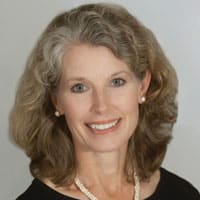
Melanie Folstad earned a degree in English with a goal of becoming a high school teacher, but life threw her a curveball at her first teaching assignment.
“I spent two weeks subbing for eighth graders at the very end of the school year and quickly realized teaching teenagers was not for me,” she says. So she decided to go in a very different direction and get an MBA. Landing a job in the office of a financial advisor during grad school cemented her path.
“Kind of serendipitously, I started working with him as an assistant and have never looked back,” she says.
Folstad, now a financial advisor at RBC Wealth Management in Chevy Chase, Maryland, says the role and career are great fits.
“Having a good advisor can be a great thing and having a not-so-good advisor can be a pretty bad thing,” she says. “So I want to be an advisor that has impact in a positive way.”
As part of her discussions with clients, Folstad helps them identify and create a charitable legacy that is meaningful to them. It is an instinct that she says was hardwired into her by her parents and has continued throughout her adult life.
“I was brought up in a family where philanthropy was a priority,” she says. “Every Sunday, Dad would get the church envelopes out and put his money in, and he would hand my sister and me our envelopes,” she says. “Everybody put their little contribution in. It was never really a discussion.”
Her childhood philanthropy went far beyond the church envelopes. When she was 10, she sponsored a boy in India through Save the Children. From her allowance and babysitting money, she paid the $19 a month to support him, and she corresponded with him for about a decade.
Enthralled by the annual Muscular Dystrophy Association telethon, Folstad and her sister held a carnival in an empty lot next to their house and sent the proceeds to the MDA. When she was 20 and volunteering at the local telethon, she met her husband-to-be, both answering phones on the overnight shift.
They married three years later. “Instead of having a gift registry, we just asked people to make donations to MDA, and we actually invited Jerry Lewis to our wedding,” Folstad says. “He didn’t come, but he sent us a card.”
Spinning it forward
Folstad says the seeds of giving planted in her childhood have guided her charitable giving and her enthusiasm for philanthropy. Her message to everyone, from high schoolers to her clients, is simple: “There are essentially three things you can do with your money: You can spend it. You can save it. And you can share it.”
In her career, Folstad finds that the people who are happiest do all three. “At different points in your life, you might have to do a little bit more of one than the others. But to really have a healthy perspective on the world around you, I think you have to have all three as part of your money plan.”
Folstad finds that when she shares her personal experience with her clients, the message goes further.
“I think it’s important that they know I don’t just say these things; I do them,” she says. “Then I can explain to them how I apply them in my own life. I’ll say, ‘I just moved over 15 shares of this mutual fund to my donor-advised fund. I’m going to get a deduction for the full value of it, but I totally bypass the taxes on it.’”
Planning eases anxiety
When clients have accumulated some wealth, Folstad tells them there are some questions they should be asking themselves: What do you want to do with your money? Do you want to gift it to your children? Do you want to start giving some of it away? Do you want to start coaching your children on how they should give it away?
“That actually has been a conversation that I’m having more and more,” she says. “Clients are recognizing that their kids are going to end up with a lot of money — or what we feel is a lot of money — and they don’t want them to be adversely affected by unearned income.”
That is why planning comes in handy, Folstad says. She and her peers can help clients answer those questions and create a plan that benefits family and community.
“Start now in both encouraging them to be part of the conversation and encouraging them to start being philanthropic,” she tells her clients. She is doing the same with her children.
Every year at Thanksgiving, she asks her children to each figure out how they want to give away $1,000 before the end of the year to their charity of choice.
“They have to come to me with their proposal,” she says. “I’m never going to say no, but I just want to know that they’ve done a little bit of work on it and that they’re being thoughtful about where it goes.”
Making good stuff happen
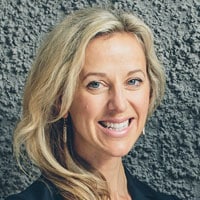
Born and raised in Missoula, Montana, by small business owners, Kim Shappee grew up listening to dinner table conversation about hiring, firing, making payroll and managing money. It was an early, fascinating education in finance that made her think about what it takes to run a business.
“You always need to know where the money goes,” says Shappee, a financial advisor at RBC Wealth Management in Missoula. “I will never forget my dad going through the Enron collapse with me when I was young and talking about how this could have happened. If you’re a leader, you need to understand where money goes.”
Her precocious interest in business put her on a path to Babson College in Massachusetts, a top school for entrepreneurship. In their first year, teams of Babson students run their own businesses. “So, I was in a suit every Friday, pitching to venture capitalists from the Boston area,” she remembers. “Our business ran for the course of nine months. We made money and donated it to a local nonprofit.”
Being the CEO of her 30-student business gave her a different perspective on finance.
“I didn’t like the money piece. I liked the leadership piece. I liked the people, product, mission piece, but I knew the money piece mattered,” Shappee says. Later, at the University of Stellenbosch in South Africa, she taught entrepreneurship and led microlending competitions in townships. It was there that an important idea became real to her.
“I really saw in South Africa — which is basically what I see everywhere — that when women have financial power, great things happen,” she says. “I got to help women transform their relationship to money and their relationship to power, simply by being able to learn to run a small business and make some money.”
Those lessons learned as a college entrepreneur and in South Africa are directly related to community issues much closer to home.
“When women spend money, they spend it differently than men,” says Shappee. “The first thing they spend it on is their family. And the second thing they spend it on is their community. That, to me, was just like this aha, life-ripple moment.”
Shappee says the United Nations sees women as the future. In its sustainable development goals, the U.N. identifies equity as social equity and gender equity for women, because as soon as women have gender equity in the world, a lot of the other problems are solved.
“We’re going to solve climate change. We’re going to solve some of the awful poverty and food disparity,” she says. “Give women financial power, and good stuff happens.”
Putting ideas into action
Like many other financial advisors, Shappee says economic security and charitable giving require putting in the work.
“One of the hardest parts of my job is helping people shed their old skin that got them to where they are, but it’s maybe not going to get them to the next level,” she says. “I’m a huge accountability partner and coach for people.”
She helps clients recover from their pasts and look to the future. “You still feel like the person from 20 years ago who didn’t think there’d be enough food to put on the table or who had an awful experience with someone stealing from you. But now you’re actually quite safe and secure,” she counsels clients. “Now we’re here, and how do we get you to the next point?”
Cyndy Ranzau, a wealth strategist with RBC Wealth Management, couldn’t agree more. The youngest of four kids raised by a single mom who sometimes relied on food stamps, Ranzau is still money vigilant. She understands that it can be intimidating to plan a charitable legacy, especially for clients who are self-made and didn’t have a lot of wealth growing up.
“I can relate, because the reason they are wealthy is sometimes because they are frugal and live a modest lifestyle compared to their income and net worth,” Ranzau says.
Understanding that it’s safe to give is part of the process — and she’s been through it herself.
“I used to just give money here and there to whatever charity sent an appeal, and realized I never connected with them,” she says, noting that she now often gives to food banks and similar charities to honor her mother.
Having her donations matched by the RBC Foundation changed her perspective.
“I realized my gifts could have double the impact if I focused on one or two charities that mean something to me. I saw my donations matched and wanted to keep doing it,” she says. “The process gave me the incentive to define what my charitable purpose is.”
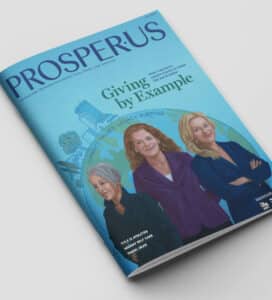 It’s a story she shares with clients, and she was also part of the RBC team that created a workbook to help families define their charitable vision and to bring the next generation into the conversation.
It’s a story she shares with clients, and she was also part of the RBC team that created a workbook to help families define their charitable vision and to bring the next generation into the conversation.
Simply put, she says creating a charitable purpose is part of helping clients identify “all the facets of their life that they could align with their value system.”
Because what these female financial advisors know is that there actually can be certainties beyond death and taxes — you just have to find what’s meaningful to you.
RBC Wealth Management does not provide tax or legal advice. All decisions regarding the tax or legal implications of your investments should be made in connection with your independent tax or legal advisor.
RBC Wealth Management, a division of RBC Capital Markets, LLC, Member NYSE/FINRA/SIPC.






